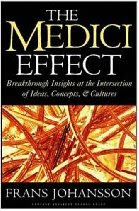 How the States Got Their Shapes by Mark Stein (who looks so strikingly similar to Ben Stein that they could very well be related) had potential to be painfully boring and dry, or thrillingly exciting and full of obscure, interesting bits of knowledge. It was, at times, both. Here's my top five favorite bits of trivia:
How the States Got Their Shapes by Mark Stein (who looks so strikingly similar to Ben Stein that they could very well be related) had potential to be painfully boring and dry, or thrillingly exciting and full of obscure, interesting bits of knowledge. It was, at times, both. Here's my top five favorite bits of trivia:Why does Tennessee's northern border seem to stagger instead of riding a straight line? Because people along that border bribed surveyors so that they would be listed as residents in their state or county of choice...and they bribed those surveyors with locally made moonshine.
What state is Ellis Island in? It's in New York and New Jersey. The original boundary between those two states was an invisible line under water between the two states. Jersey got to keep everything attached to their mainland, and the land underwater to the official border running along the bottom of the Hudson (which is why when riding in the Lincoln Tunnel, you cross into New York halfway through the tunnel. Developers expanded Ellis Island in the 1890s due to the crush of immigrants coming to the country, and did so with land dredges from the bottom of the Hudson. In 1998 the Supreme Court ruled that all the parts of the island made up of the dredged silt (about 80% of Ellis Island) belong to New Jersey.
Which is the widest state? Actually, from east to west, Hawaii expands over 1,000 miles.
What's with all those square states in the west and midwest? The US government wanted to make the new states as equal as possible...so, where they could, they made them 3 or 4 degrees tall and 7 degrees wide. The founders of our nation wanted our rules and our map to convey the ideal of equality.
Why even bother with Rhode Island? Well, it was developed as the first colony devoted to the idea of religious freedom...much unlike Pennsylvania, Massachusetts, Maryland and others. They got their colonial charter and expanded beyond the Aquidneck Island to encompass more land...and got their official royal charter in 1663.
For someone who has driven or ridden through 48 of the 50 states, this is the kind of stuff that hits just the right nerdy buttons...though it was even a bit too nerdy for me at times. Some of the semantics of the border disputes seemed more clinical than passionate. That said...It was definitely a worthwhile read, and something I'll likely go back to before taking a trip to another state or making another long drive.




























